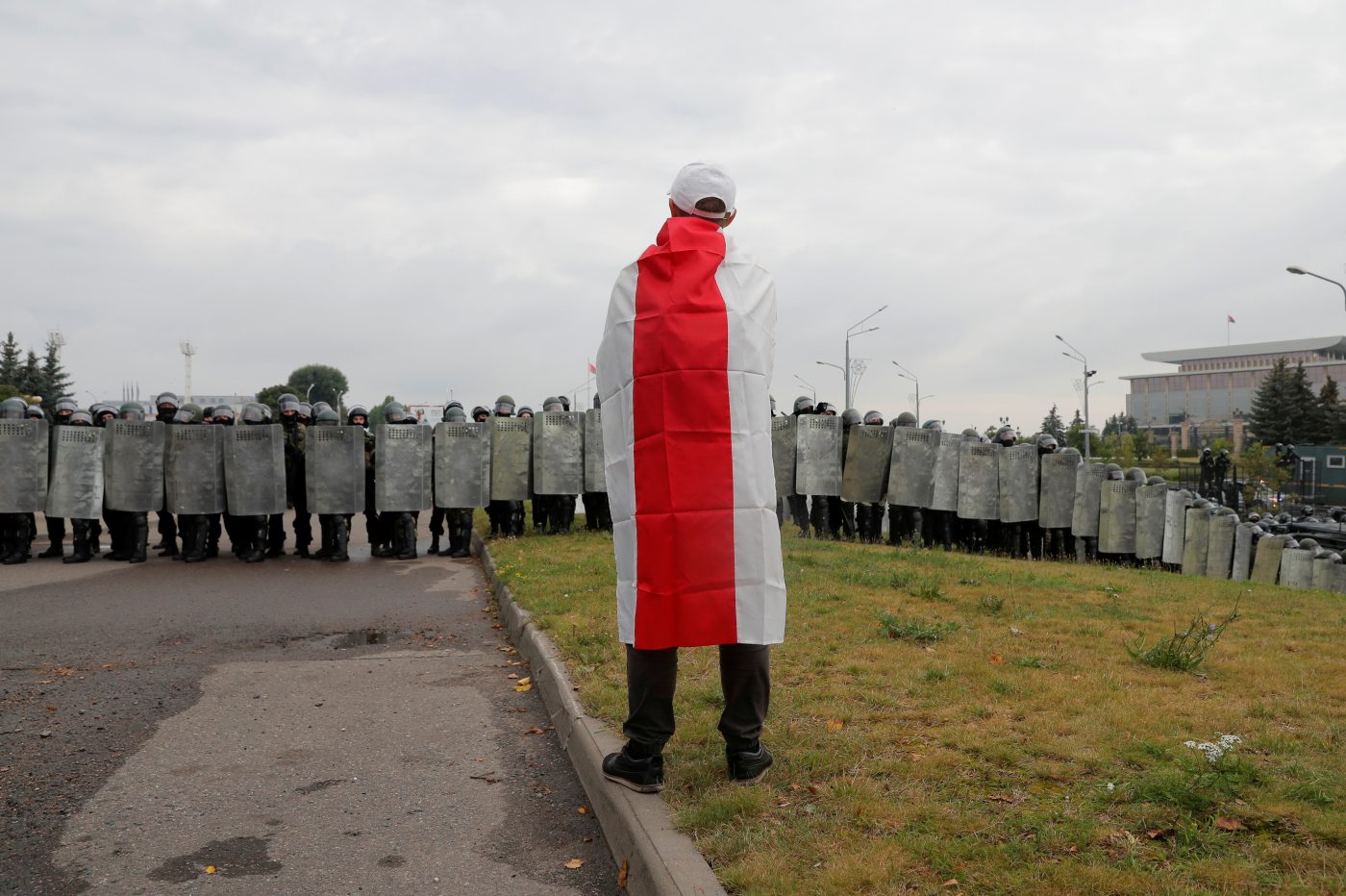When Russian troops attacked Ukraine, Belarus techies went on the offensive. Cyber Partisans managed to hack into and paralyze the control system of the Belarusian railways. The attack forced trains to be managed manually for several weeks, causing a significant slowdown in the supply of the Russian Army.
Little is known about these Cyber Partisans. Their only public representative is the group’s spokesperson, Yulianna Shemetovets, who lives in the United States. According to Shemetovets, new recruits have joined them since the war began, and group counts about 60 members. All communication between group members is anonymous. No one knows each other’s names or whereabouts. There are no professional hackers on the team, only IT specialists, some with experience in cybersecurity. According to an anonymous group member, their goal is “to stop the violence and repression by the terrorist regime in Belarus and return the country to democratic principles and the rule of law.”
Russia’s invasion of Ukraine accelerated the departure of Belarus’s tech workers. Due to European and American sanctions, foreign customers started refusing to work with Belarusian companies that still had a physical presence in Belarus. SWIFT disconnected Belarusian banks from its interbank transfer system. Belarusian IT companies began experiencing problems with blocked accounts and access to cloud services.
IT specialists fled. During the previous migration wave of 2020-21, the initiative to relocate came from employees. This time, Belarus IT companies themselves took the lead. Some firms chartered entire flights to get their employees out of the country. According to a survey, 80% of Belarusian IT companies have launched full or partial relocation schemes.
In April 2022, computer game developer Wargaming, with 2,400 employees in Belarus, announced its departure. The company transferred its Belarusian and Russian offices to another firm and closed its studio in Minsk. Belarus’ largest IT employer, EPAM, spent more than $33 million in the first three months of the war to relocate its employees. Workers who refused to leave were fired.
SOFTSWISS, a tech company providing software for online casinos, relocated half of its 1,000 Belarus-based employees. “Our employees are privileged to have a choice, and the war in Ukraine helped many of them realize that relocation is currently the only way to bring their families to safety,” SOFTSWISS founder, Ivan Montik, said. “Our company is offering them complete support from arranging charter flights to providing accommodation and assistance with finding a school or kindergarten for kids.”
The 2022 migration proved much broader and more numerous than the first wave of departures. According to Aleksander Khomich, head of the Belarusian IT company Andersen, one in five IT specialists left Belarus after Russia’s war in Ukraine compared to one in ten after the 2020 presidential election. employees dominated the departures in 2020, while mid-level workers fled after February 2022.
Poland proved the most popular destination, followed by Georgia, Lithuania, and, somewhat unexpectedly, Uzbekistan, which launched a special migration program. Visas issued under the Poland Business Harbor program rose from 33,000 in June 2022 to 53,000 in October 2022.
Georgia is another popular destination. During the first three weeks of the conflict, Georgia’s interior minister said that 15,777 Belarusians had entered the country. By the summer of 2022, half of them had already left the country. Some moved to the West, and some returned to Belarus after the first shock of the war had passed.
Lithuania is home to another significant Belarusian IT community. As of May 2022, around 2,000 people worked in the Lithuanian offices of Belarusian IT companies. In autumn 2022, two recently relocated companies with Belarusian roots — EPAM and Wargaming — became the second and third-largest IT companies in Lithuania.
Other popular destinations include Armenia, Latvia, Germany, the UK, the US, Canada, and the Netherlands. Overall, as of autumn 2022, it is safe to assume that some 25,000 Belarusian IT workers have left the country. A certain number of Belarusian IT workers remain in Ukraine, where there were around 2,000-4,000 of them prior to the war (their Telegram chat still has more than a thousand members).
Although the mass exodus doesn’t mean that the sector will cease to exist inside Belarus, its long-term future looks dire. Companies operating in the domestic and Russian markets remain. Belarus still has schools for training new IT specialists. But the main IT university in Belarus is seeing reduced IT enrollment. According to a prominent Belarusian IT entrepreneur, Kirill Voloshin, “Gradually, Belarus will turn into something like a grey zone.”
The progressive and politically active IT sector will move abroad, predicts Belarusian economist Lev Lvovsky: “Companies, even after they relocate, still remain in many ways Belarusian IT companies and retain ties with each other. It gives hope that we will have a kind of Belarusian IT sector in exile.” Belarus’s exiled IT workers run crowdfunding projects helping the families of political prisoners or helping Belarusian volunteers in the Ukrainian army.
They are building ‘Digital Belarus.’ It allows users to vote, pay taxes, and in the future, possibly even have a digital passport. The platform makes it possible to search for and offer jobs and receive education and medical services. “I think in the future we will move from the state as a territory to the state as a value-based community, so why not try that now?” concludes founder Pavel Liber.
Andrew Wilson is Professor of East European Studies at University College London. Yale University Press recently released the fifth updated version of his book The Ukrainians: The Story of How a People Became a Nation.”
Tadeusz Giczan is a Non-resident Fellow with CEPA. He is a London-based journalist with Infopoint Media Network and a PhD candidate at University College London, School of Slavonic and East European Studies.
Bandwidth is CEPA’s online journal dedicated to advancing transatlantic cooperation on tech policy. All opinions are those of the author and do not necessarily represent the position or views of the institutions they represent or the Center for European Policy Analysis.






